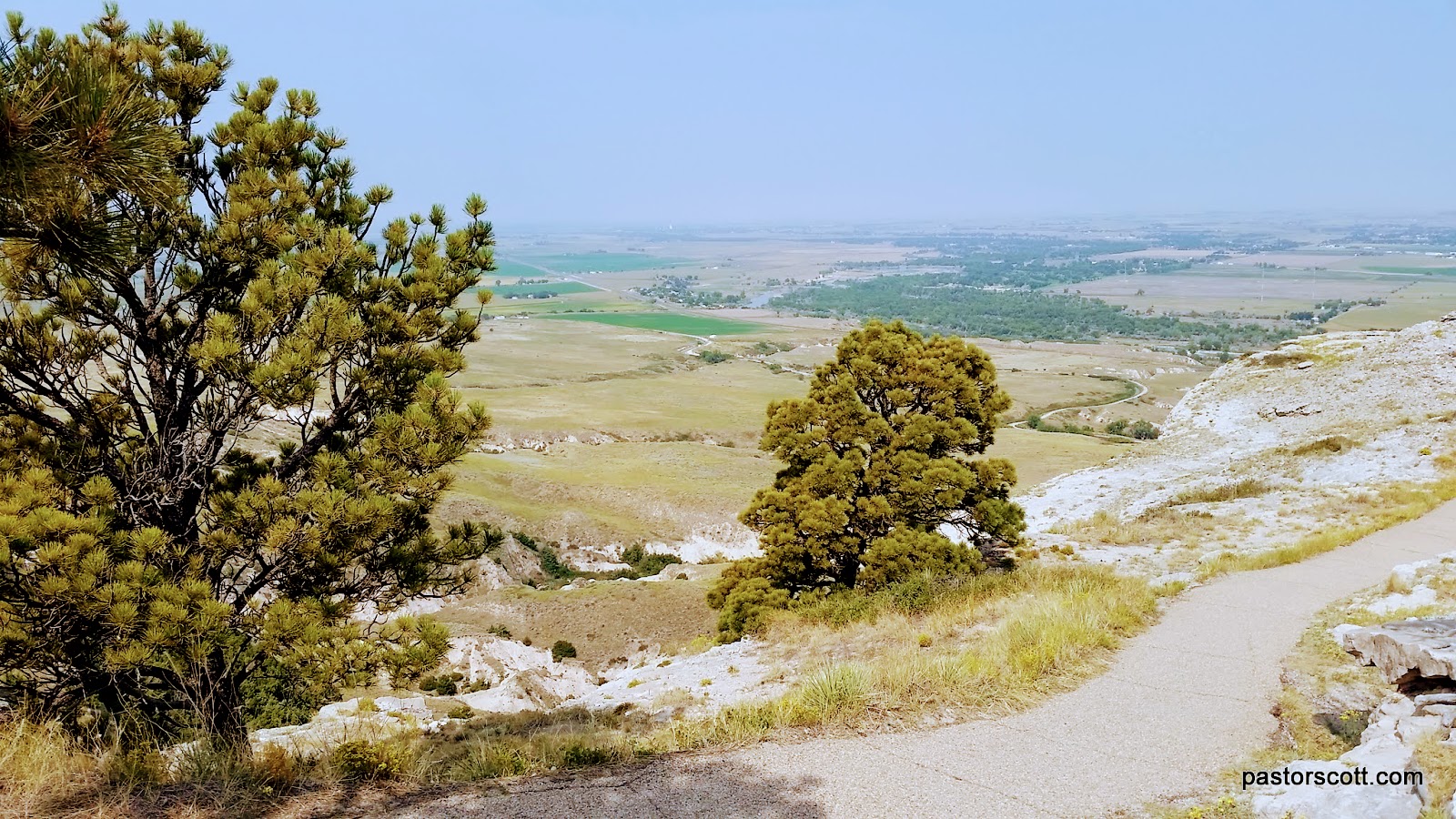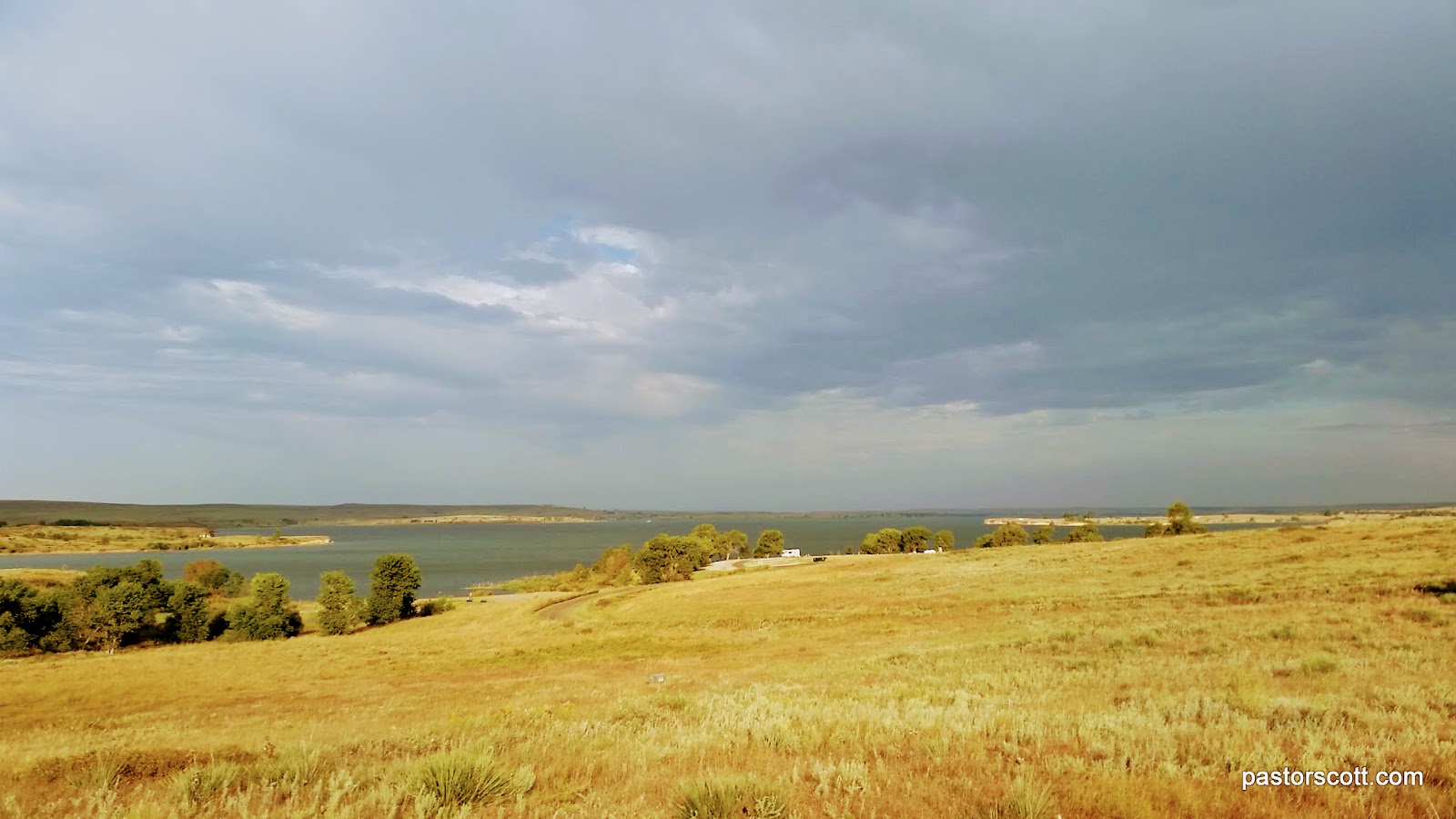Department of human resources
1 Chronicles 12: Hardly a day went by without men showing up to help – it wasn’t long before his band seemed as large as God’s own army!
David’s cause is a just one. He’s been open and honest and faithful. Still, King Saul knows that his throne is, in reality, David’s. He’s done nothing but be loyal to Saul yet he finds himself named public enemy number one. David withdraws simply to save his own life. However, like a magnet, he begins drawing fellow outcasts. Saul can’t find David, but everyday people just show up and ask to join him. Before long, he commands a force to be reckoned with and some of the great warriors of history are numbered among David’s band. How’d this happen? I think God’s finger prints are all over this. The Lord picked David and now the Almighty’s building his team for the work to be done. Many years later David’s most famous descendant has surrounded himself with twelve good men. Still, there’s much to do. A great harvest beckons, but more workers are needed. Jesus tells his core group to pray that the Father will send more harvest workers. In David’s day people who probably weren’t even sure how they found him just showed up to join his cause. In the Gospels, Jesus puts out a call for harvest workers. Maybe we church leaders should take note of what happens here. If we’re doing what God wants done, he’ll supply the people to do it. The Lord doesn’t use up human resources so we can do what we want to do. However, as we see in David’s case, he has an abundant supply of people to help us do what he wants done.
Take Away: If we’re faithful to the Lord he’ll supply the resources necessary for us to do what he wants done.
Category: Pastor Scott
Devotional on 1 Chronicles

I’ll just trust God anyway.
1 Chronicles 13: God erupted in anger against Uzziah and killed him because he grabbed the Chest.
The death of Uzziah is shocking to me even as it is to David in this passage. They’re doing a good thing, bringing the Chest of God back from obscurity to its rightful place of honor in Jerusalem. Everyone agrees that it’s “the right thing to do.” For transport they go so far as to build a brand new cart and David and others lead the way in a joyful procession. It’s at the threshing floor in Kidon that disaster strikes. The oxen pulling the cart stumble and Uzziah, who is, it seems, somehow involved in the mechanical part of the move reaches out and touches the Ark to steady it. That’s when the shocking thing happens. God strikes Uzziah dead for showing a lack of reverence for this holy object. If you expect me to explain all this away I’m afraid I must disappoint you. Even David who’s right there is frightened by what he’s just seen. He decides to put the Ark in the building there, unwilling to bring it to Jerusalem. It may be that Uzziah didn’t really need to steady the Ark and only used the incident as an excuse to reach out and touch it. After all, everyone knew that the Ark was to be carried with poles so that the Levites who were entrusted with the task wouldn’t ever actually touch it. However, that’s just speculation. Ultimately I’m left with my belief that God’s character is pure love and that he never acts in a way contrary to his character. This situation, like a million others, is beyond me. It’s another of those “I’ll just trust God anyway” situations we find in both the Bible and in our own lives.
Take Away: Happily, our salvation isn’t based on knowledge, but is, rather, based on faith.
Devotional on 1 Chronicles

Precious memories
1 Chronicles 15: God exploded in anger at us because we didn’t make proper preparation and follow instructions.
This is the second effort David has made to bring the Ark of the Covenant to Jerusalem. The first ended with death. David says that was because the proper preparations and procedures weren’t followed. This time things will be different because he’s paying better attention to the details. There’s nothing like the Ark in Christianity. Many traditions have holy objects but none of them are revered as was the Ark. There’s a reminder here of the importance of sacred places and things. For instance, there are places that are special to me because I’ve had especially powerful encounters with God in them. Maybe you have your mother’s old Bible and just holding it causes you to feel not only closer to her, but to the Lord. These things aren’t the same as the Ark or, later on, the Temple’s Holy of Holies. Still, though, as I see David making plans to move the Ark, I’m reminded of the power of some things that have been used by the Lord to connect me to him. I don’t worship them, but they are precious to me.
Take Away: It’s a good thing to be reminded of times and places where the Lord has seemed especially near.
Devotional on 1 Chronicles

Anointed worship leaders
1 Chronicles 16: That was the day that David inaugurated regular worship of praise to God, led by Asaph and his company.
Having secured his hold on Israel and having brought the Ark to Jerusalem David moves to establish regular worship services. It’s quite instructive to see the lists of, not only the mighty warriors who fought with David, but of “mighty worship leaders” as well. We thank God for those who have the bravery and skill to protect us from those who would harm us. Such people are worthy of our admiration and thanks. Here, I’m reminded that those who are gifted and trained to lead me into the Presence of the Almighty are also people worth my deepest appreciation. Also, I see here that David feels worship services are important enough to merit the appointing and organizing of specific worship leaders. That doesn’t mean that those who aren’t “official” can’t lead in worship, in fact, they often do. Some of the finest worship services I’ve ever seen were led by ordinary people with little formal training but who knew something about getting into the presence of the Lord. Whether a person’s “on salary” or not is a poor reflection of whether or not they’re gifted in leading genuine worship. I thank God for worship leaders who usher us into the presence of the Lord. Thank God for anointed people.
Take Away: Some people are gifted to lead in worship, thank God for them.
Devotional on 1 Chronicles

Real worship
1 Chronicles 16: God is great — well worth praising!
It’s a world class worship service. A tent has been pitched for the purpose of housing the Ark of the Covenant and that Ark is being brought into Jerusalem for the first time. King David, himself, leads the procession, joyfully dancing before the Lord. The great worship leader, Asaph, leads the choir in singing praises to God. They sing a wonderful song of praise and worship in which they recount the wonders the Lord has performed and declaring “God is great — well worth praising!” They sing of God’s goodness and love and holiness. When the song has ended, the congregation responds with shouts of “Amen” and “Praise God.” What a holy event! Know what, I’m glad that such worship services aren’t just for the pages of the Old Testament. I’m glad that there are times when the people of God go all out in praising him and that at such times the Lord comes close, filling such holy moments with himself. This passage reminds me of awesome worship services I’ve been in. Even more, it creates in me a desire to occupy such holy ground again, real soon!
Take Away: The great worship events of the Bible, along with worship events we’ve experienced personally, provide the inspiration and desire to once again enter into the presence of the Lord.
Devotional on 1 Chronicles

Go ahead…wait! Stop!
1 Chronicles 17: Nathan told David, “Whatever is on your heart, go and do it; God is with you.”
It sounds so right. David’s throne is established and now the Ark resides in Jerusalem. When David tells the man of God that he wants to build a Temple of worship Nathan never hesitates to place his stamp of approval on the project. After all, David is God’s man and who could ever deny God’s man the privilege of building a great house of worship. That night though, God speaks to Nathan. The message is quite a positive one for David. The Lord’s pleased with David and the greatest leader in the history of the world will be one of his descendants. But David isn’t to build a Temple. The prophet is a good man who returns to David the next day to relay this message from God. The “no Temple” thing is brushed aside as David focuses in thanksgiving on the promises he’s just received. Still, I can’t help but think about Nathan at this point. When he tells David to go for it I think his heart’s in the right place. To him, this is a slam dunk that doesn’t even require prayer. He’s probably the most surprised person in the world when he hears this word from the Lord. Really, I don’t think Nathan does anything wrong in this story. His reaction to David’s suggestion has the earmarks of a good man who delights in God being honored and served. Still, his reaction to the message of the Lord is even better. Think of it: he’s already set sail on this Temple project. In fact, he’s granted permission in the Name of the Lord for it to proceed. Then, with just one word from the Lord he pivots one hundred eighty degrees and goes straight to David with the correction. This incident doesn’t cause me to fear having opinions and reaching conclusions based on the facts as I know them. It does, though, teach me not to hold too tightly to those conclusions. Even as a dedicated Christian, I often reach the wrong conclusions. Nathan’s story is a good lesson in how I’m to respond when I realize that has, once again, happened.
Take Away: For godly people to have godly opinions is a good thing, but even such people and such opinions are subject to God, himself.
Devotional on 1 Chronicles

Good stuff
1 Chronicles 18: Thus David ruled over all of Israel. He ruled well, fair and evenhanded.
David succeeds on all fronts. Here’s a King who prays passionately, fights successfully, and rules justly. All this could have been said about Saul, but when Saul rejected God, God rejected Saul. Now, finally, the promise made to Abraham long ago has come to pass. His descendants possess the Promised Land and his offspring number in the hundreds of thousands. Israel is now more than a family of wanders or even a nation of ex-slaves. Israel is a nation of the people of God led by the man God, himself, has picked to be their king. The story continues with the ups and downs of life and, as well all know, failure is on the horizon. For the time being though, I think I’ll just camp out here and rejoice with the people of this distant day. God keeps his word. He does good things in and for his people. He enjoys blessing our lives. Yes, this is a good place to hang out for a while.
Take Away: When the Lord blesses us we need to take time to enjoy and appreciate those blessings.
Devotional on 1 Chronicles

Springtime always comes
1 Chronicles 20: That spring, the time when kings usually go off to war….
It’s a rather off handed statement, said as though it’s a truism that every reader will accept without a further thought. It’s springtime and the king is off to war. From here, we move forward to a few accounts of the victories won by David and his army, including more battles with big guys similar to Goliath. Apparently, the writer thinks that we’ll all agree that there’s a time for national leaders to lead their nations into war. David lives in an imperfect day in which some nations are belligerent against other nations. If he relaxes, enjoying the success the Lord has given him, the enemies of Israel will move to wipe them off the face of the map. Therefore, when the weather is right, David’s army gears up for war, knowing that if they don’t they’ll be erased by those who wish them dead. That’s a long time ago and the world has changed, right? You know that aside from the fact that armies no longer wait till spring to do battle that the world remains a dangerous place. I know I can’t take a passing phrase from 1 Chronicles to develop a philosophy of international relationships, but I do think that this is an example of a national leader doing what’s necessary to keep his nation safe and secure. As a people of God we hate war; especially the pain and suffering it brings to the innocent. It would be better if “springtime” never came, but we know it will and because of that we regrettably conclude that a primary responsibility of national leaders is to prepare for war and, while all that is possible to avoid war, to respond when necessary.
Take Away: We need to pray for our national leaders.
Devotional on 1 Chronicles

There’s a time for simple faith
1 Chronicles 21: I want to know the number.
The story of David’s census of Israel has always been a bit puzzling to me. David is king and it’s certainly reasonable that a king have an idea of the population of his kingdom. After doing some reading about this, I’ve decided that it’s not the census that displeases God. Rather, it’s the purpose of it. Throughout his life David has been delivered by the Lord again and again. This census is designed to count the number of fighting men who are available to him. In other words, rather than trusting God to be his protector, David’s numbering his potential army. When I remember that this is late in David’s life I conclude that this might be an acceptable thing for someone less experienced with God but it’s not acceptable for David. Or put more simply, David’s old enough to know better. God expects us to mature in our relationship with him. For instance, in Matthew 16 Jesus reprimands his disciples for their lack of faith. He tells them that they’ve seen the 5000 and then the 4000 fed and it’s time to for them to get a handle on the fact that God supplies the needs of our lives, both physical and spiritual. As I read the story of David’s census I see that, as a person who’s seen his share of what God can do I’m expected to trust him more, and if I won’t do that, God will be displeased with me.
Take Away: The Lord expects us to grow in our relationship with him – to learn to trust him more – to be more and more secure in our walk with him.
Devotional on 1 Chronicles

Passing the vision along
1 Chronicles 22: I wanted in the worst way to build a sanctuary to honor my God. But God prevented me.
It was years earlier that David envisioned building a great House of Worship. The Lord blessed David for having that vision but he told David, “no.” David obediently yielded but the vision never faded. Now, late in his life David begins stockpiling materials for the great Temple project. There’s now a huge store of gold and silver and other precious building materials. David has also identified gifted stonecutters, masons, carpenters, and artisans. He’s still on the throne but he’s preparing for the day when his son Solomon ascends to leadership in Israel. The King has a father-son chat with his son, expressing his great disappointment in not being allowed to build the Temple, but also describing for Solomon all the preparations he’s made for its construction. Obviously, David wants Solomon to be infected with his vision. Worthwhile visions are, indeed, infectious. My enthusiasm is passed on to others who may actually accomplish more with it than I ever could. Also, David’s preparation efforts did a lot to assure that it would come to pass. David did more than dream of a Temple; he also did everything he could to prepare for its construction. Without that key ingredient all we have is good intentions. Visionary thinking includes not only thinking big, it includes real life preparation, and an intentional effort at vision casting.
Take Away: All the vision in the world is worthless without real life application.
Devotional on 1 Chronicles

Modern day Levites
1 Chronicles 23: The Levites no longer have to carry the Tabernacle.
Centuries earlier when Moses organized their ancestors the descendants of Levi were given the task of moving the Tabernacle and all its furnishings from place to place. It was a big job and it was their job. As Israel fell into the idol worship of the Book of Judges the Levites were still considered holy men, although the application of that position was a pitiful distortion of “holy.” Now things are coming together. Israel’s in possession of the Promised Land. They have a King who wants nothing more than to serve and please God. Their days of wandering in both the physical and spiritual wilderness are past. And the days of moving the Tabernacle, including the precious Ark of the Covenant are also over. David, displaying his organizational genius, counts the Levites and finds that there are 38,000 men of age of service. He divides them into subgroups and begins handing out assignments in keeping with the spirit of their original assignment generations earlier. From now on they may not have to carry the Tabernacle from place to place, but they’ll be the overseers of the Tabernacle and, once it’s built, the Temple. The priests, descendants of Aaron, will handle the sacrifices and such. These sons of Levi will take care of everything else associated with the Temple. As I realize how much David loves the yet-to-be-built Temple and watch as he puts these Levites in charge of it I see what a compliment he’s paying them. I know it’s not the same but I’m reminded of the people who accept responsibilities associated with the Church. Thank God for church treasurers, Sunday Superintendents, teachers, volunteer janitors, and many others who love the Church and faithfully give of their time, talent, and treasure. These, I think, are the modern day Levites.
Take Away: Never take faithful servants for granted. They serve the Lord just a significantly as the preachers and singers.
Devotional on 1 Chronicles

Security guards
1 Chronicles 26: The teams of security guards were from the family of Korah.
I’ve read this passage several times in various versions of the Bible, but since the sons of Korah were called “gatekeepers” it didn’t catch my attention. Now I see them being described as “security guards.” I guess that’s what gatekeepers are supposed to do: they provide security, seeing to it that all who enter are there for legitimate purposes. King David is such a multifaceted person. He’s a singer and songwriter and harp player, a skilled leader, and he’s a warrior who’s won countless battles. In this case, I see him drawing from his “warrior” skills in organizing the Levites. In spite of the peaceful conditions of the day David prepares for possible trouble. Now, it might be that the sons of Korah are basically ushers who tell people where the corral is for their soon to be sacrificed lamb but I’m guessing that David also wants them there “just in case.” I wonder to what extent, if any, this applies to the Church today. There have been some horror stories in the news, and, obviously, a church full of people is probably viewed as an easy target by some very bad people. I’m not seeing this as some kind of mandate, but there is, at least to some extent, a precedent here for a church to have at least some unofficial security.
Take Away: Leadership involves, in addition to having a vision and sense of direction, the ability to think through the practical concerns of the organization.
Devotional on 1 Chronicles

Seeking and being found
1 Chronicles 28: If you seek him, he’ll make sure you find him.
In his old age David’s ready to hand the kingdom over to his son, Solomon. David has accomplished much during his years as king of Israel. Most notably he’s unified Israel and made them “one nation under God.” David well remembers his predecessor, Saul. He knows that Saul failed, not because he lacked the ability to lead, but because he turned away from God. David’s charge to Solomon is to seek God and serve God with all his heart. The good news is that when a person does that God is drawn to him. I’m glad today that God isn’t hidden from me. I don’t have to perform some elaborate dance to get to him. In fact, he’s already made the first move, providing me a way to himself, planting his grace in my heart before I’ve ever thought of him. When I start to come to God, I may think that I’m starting some long and mysterious journey. That’s mistaken. When I start to come to God, I think I’m a “long way off.” I take my first step only to discover, to my joy, that he’s running to me even as the father ran to the prodigal. I start out to seek God only to discover that he’s already found me.
Take Away: If you’re looking for God today, guess what? He’s already found you.
Devotional on 1 Chronicles

On the solid rock I stand
1 Chronicles 28: Don’t be anxious or get discouraged. God, my God, is with you in this; he won’t walk off and leave you in the lurch.
The job David is leaving his son is a big one. He must lead Israel and he must build a Temple for the worship of Jehovah God. David wants his son to know that God is utterly dependable. Others will deliberately or accidentally let him down but God remains faithful all the way. With that in mind David wants Solomon to put his weight fully and firmly on his God, and for him to keep it there. That’s good advice to a young man who’s about to become king but it is also good advice for you and for me. Everything and everyone else in life is destined to disappoint us sooner or later. Only the Lord is fully trustworthy. If I look anywhere else, I’ll find plenty of reasons to be anxious and discouraged. In the Lord I find my Rock.
Take Away: We need to pass our faith on to our children – they will need it just as much as we’ve needed it.
Devotional on 1 Chronicles

More than a meeting house
1 Chronicles 29: This is not just a place for people to meet each other, but a house for God to meet us.
David is raising funds for the construction of the Temple, which will be built by his son, Solomon. It’ll be an extravagant place of worship and the hub of the life of the nation. It’ll also be the place where God will meet with man. As the people of Israel grasp this lofty concept they begin to joyfully and generously give. “Sacred space” has always been important to the people of God. It isn’t that God can’t meet us out in the common places of life because he certainly does. It remains though, that setting aside times and places for the express purpose of encountering the Lord is not only biblical, but is spiritually beneficial too. Note that this passage doesn’t describe the creation of personal, private spiritual hide-a-ways. This passage reminds us of the value of having a place set aside for the purpose of cooperate meetings with the Almighty. As the people of God, we have much to gain by creating sacred space in which we wait upon the Lord together.
Take Away: We aren’t intended to be “Lone Ranger” Christians.
Devotional on 1 Chronicles

The children of good stewardship
1 Chronicles 29: It was all yours in the first place!
Centuries before Paul ever writes to Corinth, encouraging them to give selflessly and stating stewardship principles, David lays out some giving concepts for the people of Israel. They’re raising an offering for the construction of the Temple and David’s addressing the Almighty in prayer. He’s reminded that this nation began as pitiful slaves in Egypt, without a square inch of land to call their own. Over the years God blessed them and now they can no longer say, “Silver and gold have I none.” Still, in a real sense they continue to have nothing of their own. All that they have has been graciously provided to them by the Lord. As plans are being made to build a House of Worship it only makes sense that they return a portion of that which has been entrusted to them that the planned building might be constructed. The people come through with wonderful generosity and David prays that this giving spirit might always be seen in their lives. The result of all this is the Temple. Also, there’s a wonderful spirit of celebration. Great accomplishments and great joy: these things are offspring of good stewardship.
Take Away: When the people of the Lord are faithful stewards of all the Lord has placed in their hands great things are accomplished to the glory of God.
Devotional on 2 Chronicles

Abundance of grace
2 Chronicles 1: What do you want from me? Ask.
Students of the Old Testament have long marveled at the wisdom of Solomon who, when offered anything from the Lord, asks for wisdom. In fact, the Lord, himself, is pleased with the request. Today, though, I find myself thinking about the question the Lord asks Solomon. Really, at this point Solomon has done little to cause the Lord to be impressed with him and, to be brutally honest, as I see his life being played out, I doubt he’s worthy of it. I understand that he’s assuming David’s throne and is now the leader of the people God has chosen to be his very own and in this passage I see that he starts off on the right foot, beginning his reign with a great worship service. Still, by any measure this is an unprecedented offer by the Almighty. God wants to bless Solomon. He wants this young man to be successful in all he does. Because of that, the Lord basically signs a blank check and hands it to him. I’m taken here with God’s good will toward us. He may not, like a genie, grant us anything we wish, but he does give us good things. Without doubt, he treats us better than we deserve. I know the focus on this passage is on Solomon’s answer, but today I’m taken with the abundance of grace in the question.
Take Away: The Lord delights in blessing us.
Devotional on 2 Chronicles

God is the best
2 Chronicles 2: The house I am building has to be the best, for our God is the best.
Solomon assumes the throne of Israel with one major task before him: the construction of the Temple. His father David has accomplished much. For one thing, Israel is secure, at peace with the surrounding nations. Solomon’s efforts will not have to be divided between ruling and defending his kingdom. For another thing, David has already stockpiled building materials and funds for the Temple work. Now, the responsibility for the actual construction comes to Solomon. The young king takes the job to heart. The Temple is to be a masterpiece because it’s to be the focus of the worship of Jehovah God. Some years earlier David declared that he’d not give to God that which cost him nothing, now Solomon says that the Temple must be the best because God is the best. So, how does my life measure up against this standard? Do I give God my best at every juncture of life? I don’t want to ask God to play second fiddle in any area of my life. After all, what I give to God has to be the best because God is the best.
Take Away: The Lord is the best and he deserves my best.
Devotional on 2 Chronicles

Jakin and Boaz
2 Chronicles 3: The right pillar he named Jakin (Security) and the left pillar he named Boaz (Stability).
These chapters of 2 Chronicles are devoted to the construction of the Temple. Some of the descriptions may be merely historical. Some things, though, like the perfect cube of the Holy of Holies likely carries meaning beyond the description. In the case of the two huge bronze (or copper) pillars at the doorway of the Temple, we don’t have to guess because we’re given the symbolic meaning. The six foot thick, twenty-seven foot tall pillars represent “Jakin” and “Boaz” – that is, Security and Stability. These are wonderful attributes whether we’re talking about the life of an individual or that of a nation. Every time the people of Israel of that era enter the Temple they’re reminded of the Source of their Security and Stability. We may not have a couple of large shining pillars at the entrance to our churches, but we certainly need to be reminded of the truth they symbolize. If I want to live a spiritually secure and stable life I must be firmly grounded in the Lord. The same benefit is available to a nation that allows the Lord to shape its character.
Take Away: We must build our lives on the Rock and not on the sand if we want to live secure, stabile lives.
Devotional on 2 Chronicles

I love it when God moves in
2 Chronicles 5: Then a billowing cloud filled The Temple of God.
Solomon’s building project is complete and it’s a great success. An impressive Temple is now the official place of worship for the people of Israel and all others who will come. The building is complete with the fixtures in place, the offerings ready, and the personnel standing ready to serve. Then God moves in. In a display of glory that hasn’t been seen since Moses climbed the mountain to meet the Almighty, the Glory of the Lord fills the Temple. The Presence of the Lord is so great, so real, that the priests can’t even carry out their assigned duties. Outside the Temple Solomon does the only reasonable thing: he begins to call on God in prayer. Today, I long for God’s glory to fall on his Church, for Him to come in such majesty that the order of worship is set aside and people begin to simply call on the Name of the Lord. Oh God, we seek, not so much the “billowing cloud” as we seek you. Pour yourself out upon your Church as you did upon the Temple so long ago.
Take Away: The people of the Lord need to seek and, yes, expect, the Lord to fill our worship services with himself.
